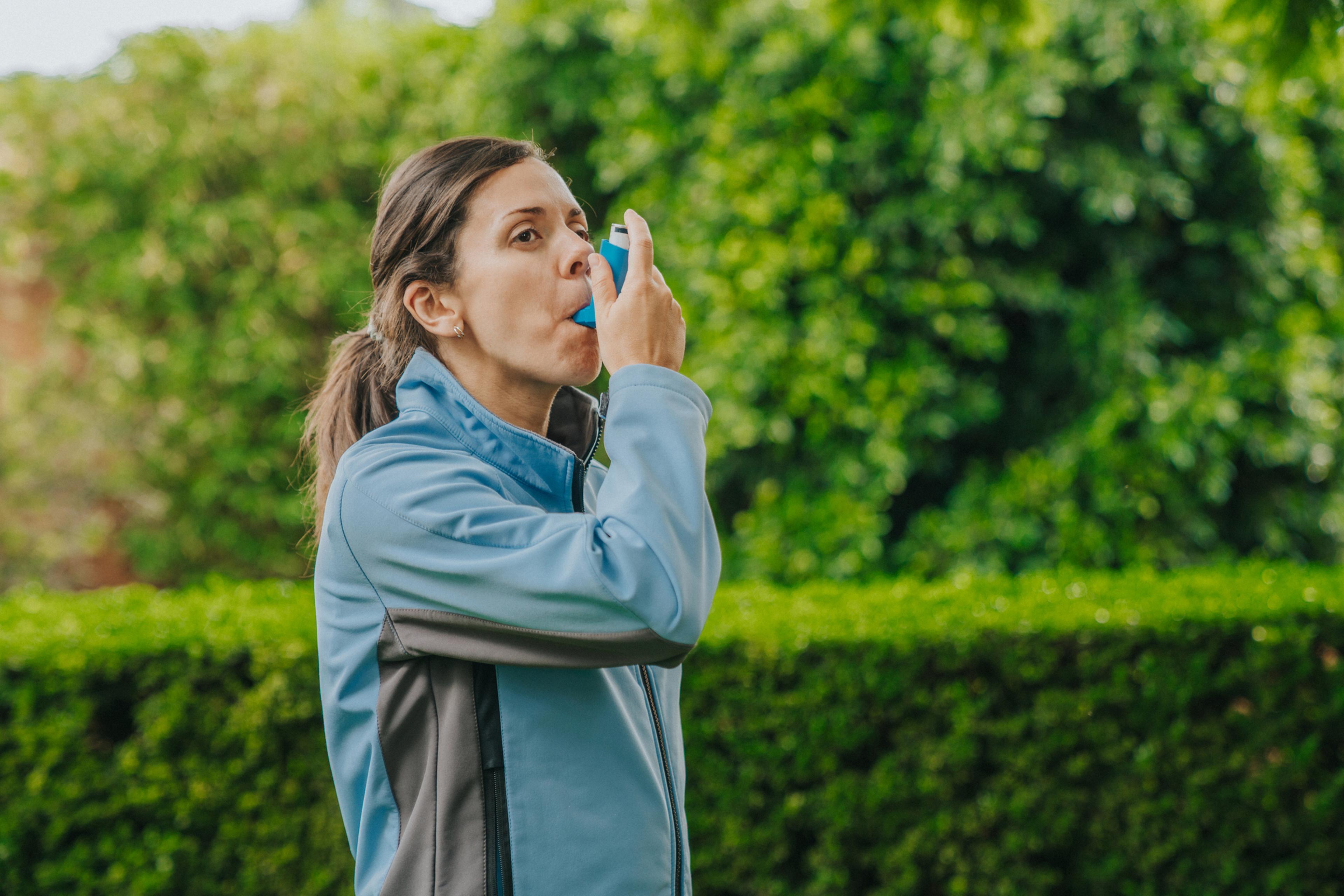Allergies, Exercise and Asthma: How Are They Related?

Lindsay Knake
| 3 min read

People who suffer from allergies may be more likely to deal with asthma. This can make exercise tough during allergy season.
Let’s look at the relationship between allergies, asthma and exercise and how to manage the conditions.
How are allergies and asthma related?
When you have allergies, your immune system can mistakenly identify things like pollen, pet dander, a food or another substance as a danger. With seasonal allergies, this causes symptoms such as running nose, itchy eyes, sneezing and fatigue. More serious symptoms can include stomach cramps, tongue swelling, throat closing, chest tightness and vomiting, according to the Allergy and Asthma Foundation of America (AAFD).
In some people, the immune system reaction to allergens includes inflammation and constriction in the airways and lungs, according to the Mayo Clinic. This is called allergic asthma.
Symptoms of asthma include:
- Coughing
- Shortness of breath
- Tightness in the chest
- Wheezing
- Difficulty breathing
Allergies and exercise can cause symptoms of asthma in people who have it, according to the AAFD. The combination of asthma and allergies can make exercise tough, especially if neither condition is under control. The experience of allergic asthma can differ from person to person. While allergies and exercise may trigger asthma attacks in some, other people may experience fatigue, wheezing and dizziness.
How to manage allergies, asthma and exercise
Being able to exercise with allergic asthma starts with controlling both allergies and asthma. If you experience symptoms of either or both, talk to your primary care provider (PCP) about treatment and an asthma action plan. Medications such as antihistamines, long-term and quick-relief inhalers and leukotriene modifiers can be effective. A PCP may also refer you to an allergy specialist for testing and treatment such as immunotherapy.
You can also help manage allergies with home and lifestyle adaptations. Avoiding triggers such as food or medication is essential. For pollen and other environmental allergies that are more difficult to control:
- Avoid allergens by staying indoors, keeping windows closed and keeping your home clean.
- Monitor pollen counts and the severity of your allergies during various weather patterns. Allergies can be worse during warm, windy weather.
- Exercise indoors and/or in the evening when pollen counts are lower.
- Change your clothes or shower when you get inside and before bed.
Should I exercise if I have allergies and asthma?
Exercise is healthy for people with allergic asthma. It strengthens your heart and lungs and increases your body’s ability to use oxygen, according to the American Lung Association. With precautions and care, you can exercise safely.
- Know the symptoms and patterns of your allergies and asthma.
- Keep your inhaler close by when you exercise.
- Cover your mouth and nose with a neck gaiter or balaclava during cold weather.
- Warm up for 15 minutes before intense exercise. For example, take a brisk walk before a run or gym workout to allow your body to adjust. After the workout, add a cooldown to help your body relax.
- Take breaks during exercise.
- If you experience dizziness, shortness of breath or chest pain, stop exercising immediately and use a rescue inhaler. Take deep breaths to recover.
Go easy on yourself if you have asthma attacks or intense fatigue and talk to your primary care provider about ways to manage the conditions. Be flexible with your exercise routine if you struggle with allergic asthma. If you struggle for weeks through the allergy season, consider more seriously modifying your workout, such as changing a run to a walk or bike ride to allow you to exercise with less stress on your body.
Image: Getty Images
Related:





